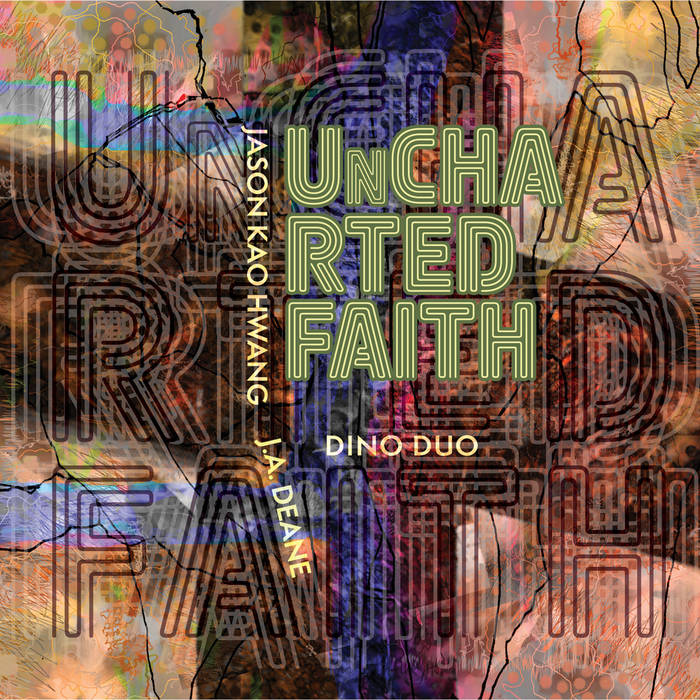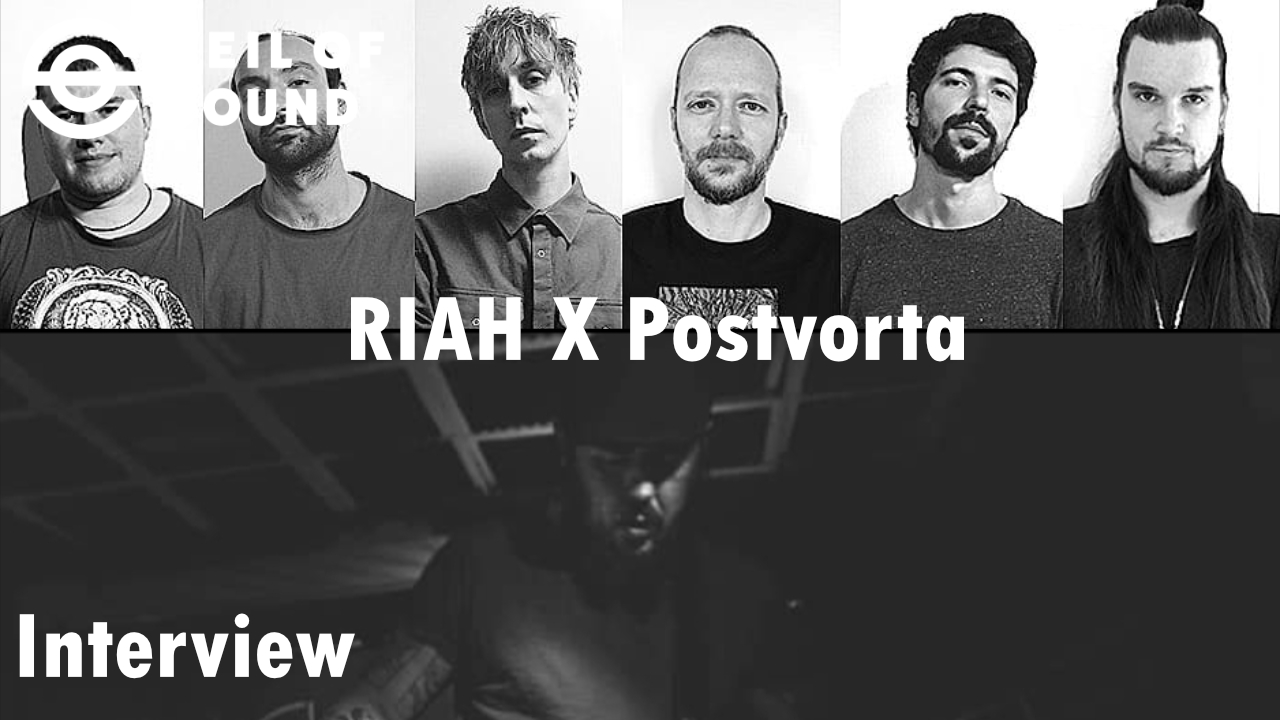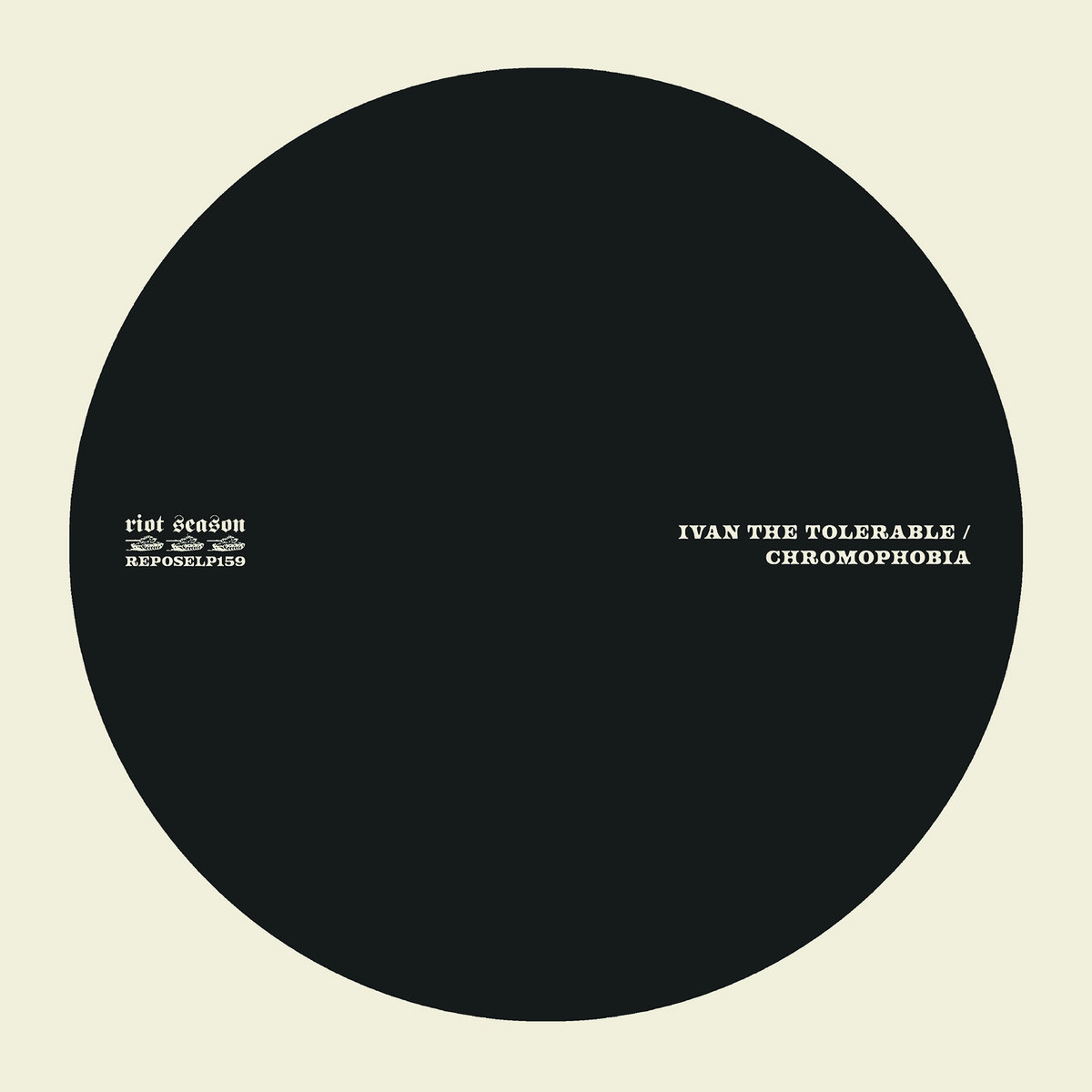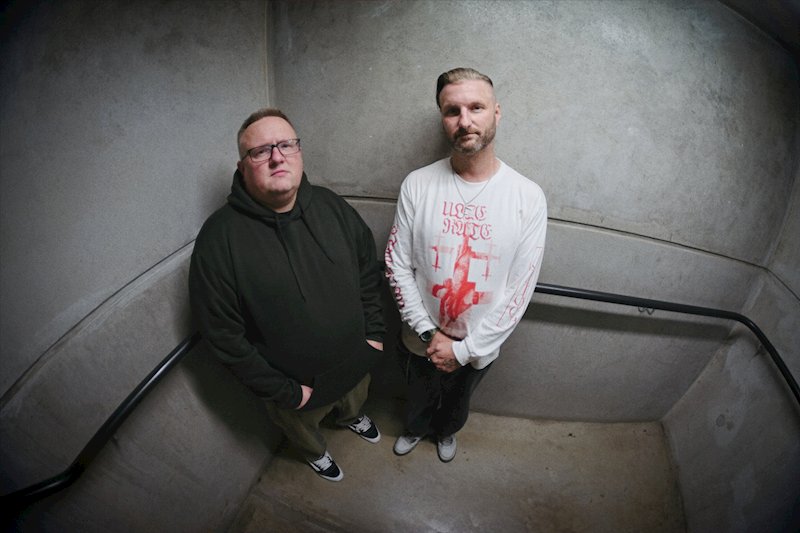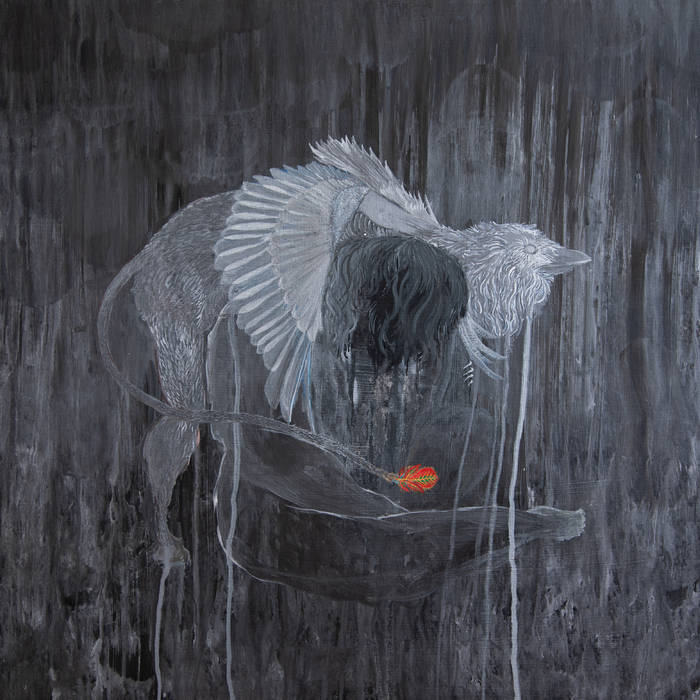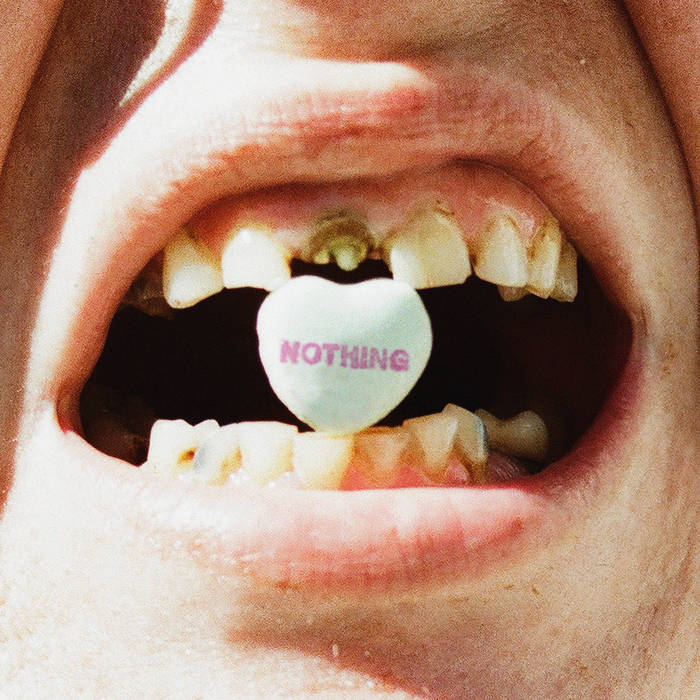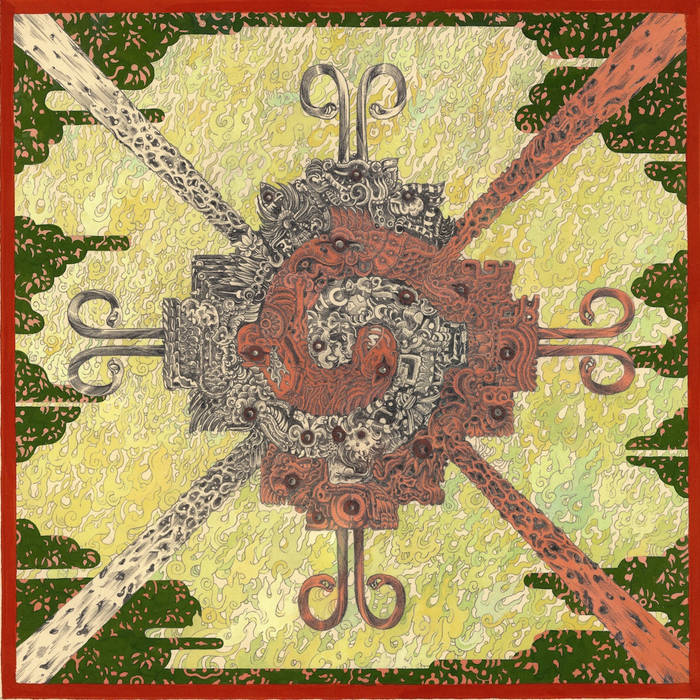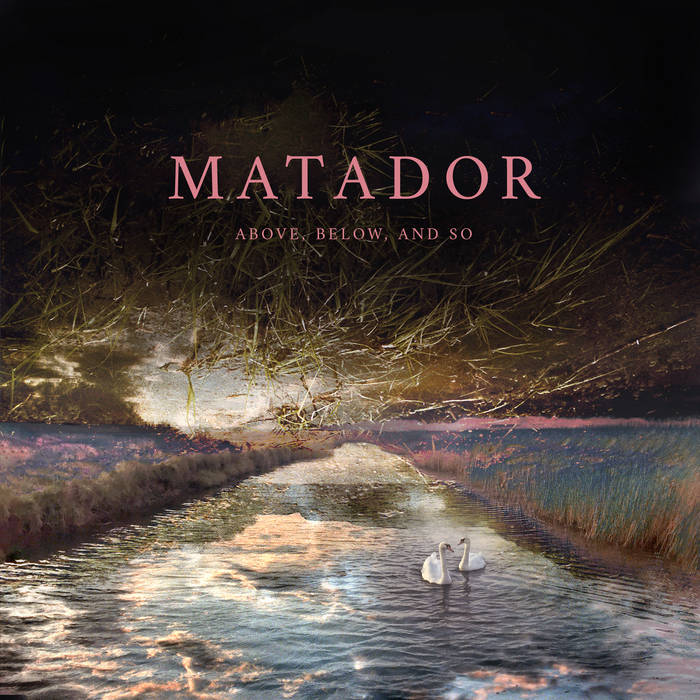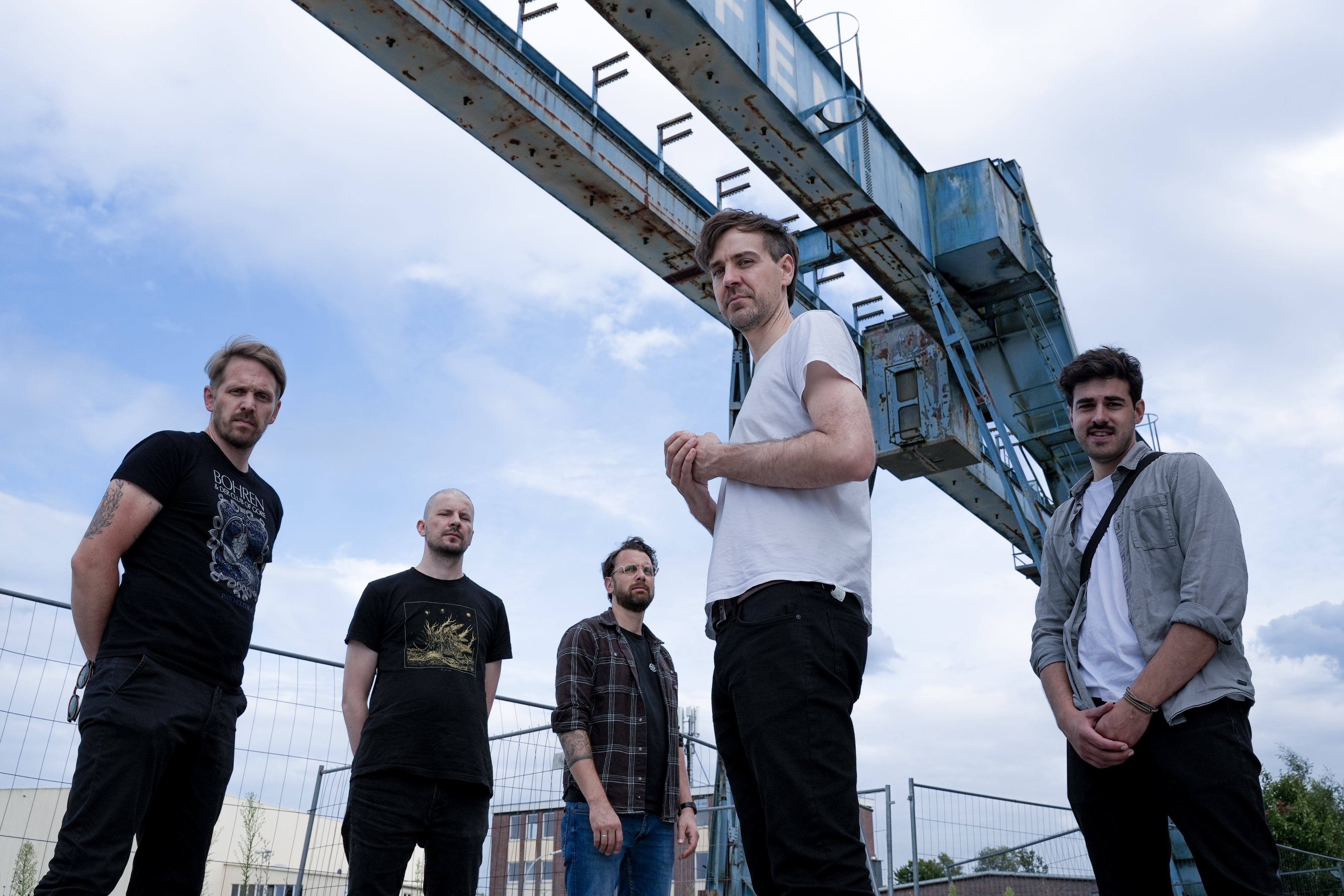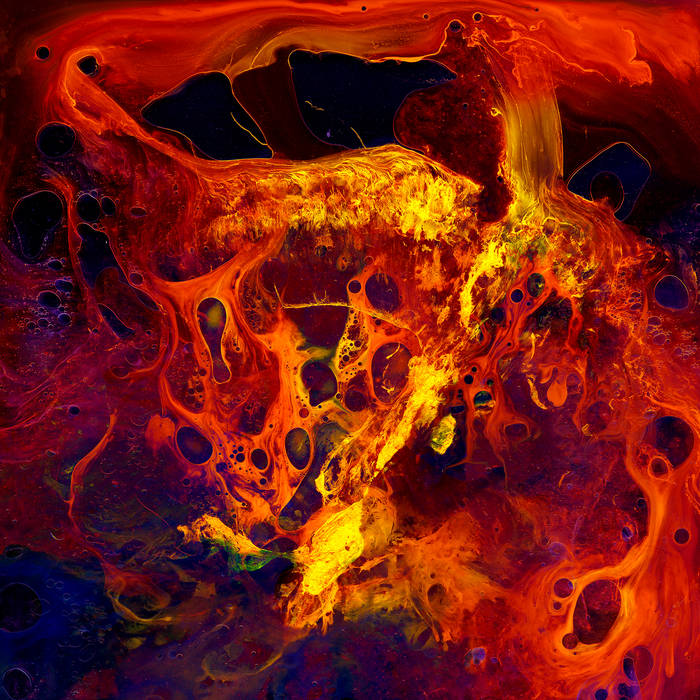High autumn winds gust golden, coppered caches of coin. Cold, driven nails of rain plumb the fleece of ageless pine, jostling limbs in silvered erratic dance. Raked midflight, tattered leaves and mast fall to ground sodden and purchaseless. Dubious campaigns officials wage as everywhere wars rage, hosts unhoused by flood and famine scatter, and disease stalks the horizon, while in the provinces signs of a chill harvest augur stores unreplenished for the dark months ahead. A cry too far to be heard above these earthly bellows, my friend, still I think of you, your toil and tarry, and long to return your echoing call… Sometimes faith is all there is to ensure we might sound each other to the depths of this experience. Like writing letters, each as if the last, to the dearest friend in the thick of circumstance, J.A. Deane and Jason Kao Hwang imbue their remarkable final collaboration, Uncharted Faith, with hope beyond bounds that we might better know ourselves in perpetuity.
The tail of this story is long. Deane and Hwang first met in the mid-1980s apprenticing under Butch Morris before travelling parallel paths to mastery over the following decades. Multi-instrumentalist Deane (“Dino” to friends and collaborators) would gravitate toward electronics, becoming a live sampling pioneer and tireless champion and scholar of conduction, the gestural system devised by Morris to guide ensembles through spontaneous composition. Hwang, playing widely in the improvisational music scene, honed a singular voice on violin before expanding his syntax to languages as far-flung as small and large jazz and Chinese-Western ensembles, film score, dramatic and dance performance, opera, and symphony. A peerless free improviser, he is also a dauntless composer and custodian of the avantgarde and Asian American jazz traditions.
Late in 2020, reinvigorated from writing Becoming Music: Conduction & Improvisation as Forms of QiGong—a suggestive musical treatise on being in the moment and “embrac[ing] life from the heart (not the head)”—Deane reconnected with Hwang to share insights and trade recordings. Despite pandemic lockdowns, an innovative duo project rapidly emerged from their correspondence. To begin, Hwang recorded solo acoustic violin improvisations, which Deane then isolated into “57 gestures” and mapped using a Sensel Morph touch controller and Spacecraft software. Equipped with these manipulated materials, he then improvised tracks using an Akai MPC Workstation and sent them back for Hwang to overdub using a Tucker Barret solid-body electric violin with FX processor.
Late in the process, a revelation threw the project’s spiritual dimensions into sharper relief. Deane confided to Hwang that he had advanced throat cancer and was embarking on “a conscious journey to transition”; he had completed his final recording. After weighing in on the mixes, Deane authorized his collaborator to finish production and delivered his parting counsel: “Please follow your heart with how you want to play into this final world.” Despite the mortal tarnish on these remarks, an enduring luster shines through. Deane conceived of music as worldmaking, at its most responsive an affirmational practice of the art of flow, a letting go of control to let be. “[E]xploring, exploding & exalting the DNA of sound”, he invented cosmographies to be shared and inhabited with others.
“Parallel Universe”, the album’s immersive opening track, spills forth a textured wash to encompass the listener in a net densely woven of fractal energies. It takes some acclimation to discern their separate origins—the various modes of touch and attack, bow strokes, and above all vibrations of Hwang’s acoustic violin being sampled and modulated—but listening feels remarkably like being submerged under water, how one’s head and body become extensions of the ears, resonant chambers that deepen and intensify waves of sound. All of Deane’s isolate gestures coalesce into an aquatic ambience teeming with dimly seen, though closely heard, life and activity. Amidst these swells, Hwang insinuates a series of suspended, majestic cries on electric violin that never fail at first to evoke whalesong. Initially hesitant moans and grumbles crest in milelong desperate keening until—for this is only half the story—a clarion perfect fifth falling upward into a diminished figure announces an evolutionary lift. Deane’s submariner swirls now begin to evaporate, relinquishing their bottom-dwelling heft for a dissipating shimmer. What at times could be mistaken for tides of schooling fish at others resembles murmurations of birds contracting and expanding in congress. Each successive metamorphosis is beguiling and, equal to the mystery, Hwang animates the elements with soul. The alembic of his electric violin allows only the noblest spirits to flow through: the whale fathoming the volumes of its ocean with a forlorn ballad; the eagle gauging its spans of sky with breathtaking ascents and stoops, a furious ballet. The oscillation proves baptismal in that there is a before and after, submersion and emergence, a persistent sensation that with each correspondent transformation we are perceiving things anew.
Though Deane and Hwang recorded asynchronously, their improvisations transcend isolation and clinical predictability on the strength of their affinities. Vibrant interplay is often retained because of the phenomenal nature of Deane’s instrumentation: since a large portion of his sonic palette is derived from Hwang playing violin, in some uncanny sense Dino is playing Hwang—through him and, gesturally, as if him—in a kind of spiritual ventriloquism. Meanwhile, Hwang dances in counterpoint to his own refracted shadows, conversing with ambulatory echoes of himself. On “Singularity”, Deane cycles through percussive interludes of flesh and bow striking wood as much as string—even for a period reconfiguring the violin by rolling its fingerboard into a resonant barrel that is plunged from inside like a butter churn—while Hwang wahs and weaves frenetic string crossing patterns through delicate punctual flourishes and delays. “Crossing the Horizon” is a feat of great distance and height. Using a whammy effect to extend the violin’s range two octaves in either direction, Hwang progressively sweeps upward from bass through the midrange, eventually attaining stratospheric heights above Deane’s sedimentary terraforming of pizzicato accents, chordal spiccato strikes, and hammered piano-tapping escalating and receding underneath. Across these mid-album tracks, playfulness yields to metaphysical urgency. Caught in the cleansing glare of reckoning and desperate for relief, Hwang’s exposed livewire violin on “Shamans of Light” casts about for any shade as it’s flensed of its pains and ills. Respite can be had on dreamlike “Speaking in Tongues”, spacious as the absolution of sleep and restorative as the just speech of loved ones, which reminds us that pain, though necessary, is not primary. The patiently conducted title track closes the album in four cathartic movements: the noble eagle, returning to flight, delights in stunning intervals of prowess; combusts, ecstatic in a full-throated ethereal song; divested of matter, attends its resounding echoes; and subsides, a potent spirit, back into the enigmatic source, end of all things.
Uncharted Faith is testament to a rare kinship forged in the ardors of freedom and love and a befitting memorial to Deane, whose creative wisdom—as ceaseless as water seeking its levels—will continue tracing uncharted courses. …Cold, cruel spring tests hope, mantling tender land in hefts of snow. Memories of yestereve’s undulate, maternal pastels—a fast-bound prism of fading sun, barred skies, and thirstful earth—now whited, recede. Though the very world go with it, pulled as if from under our feet, still beckoning from the outermost edge of earshot, a notion (I still hear you!) draws from concealed seed new germ, frail, vital green.

